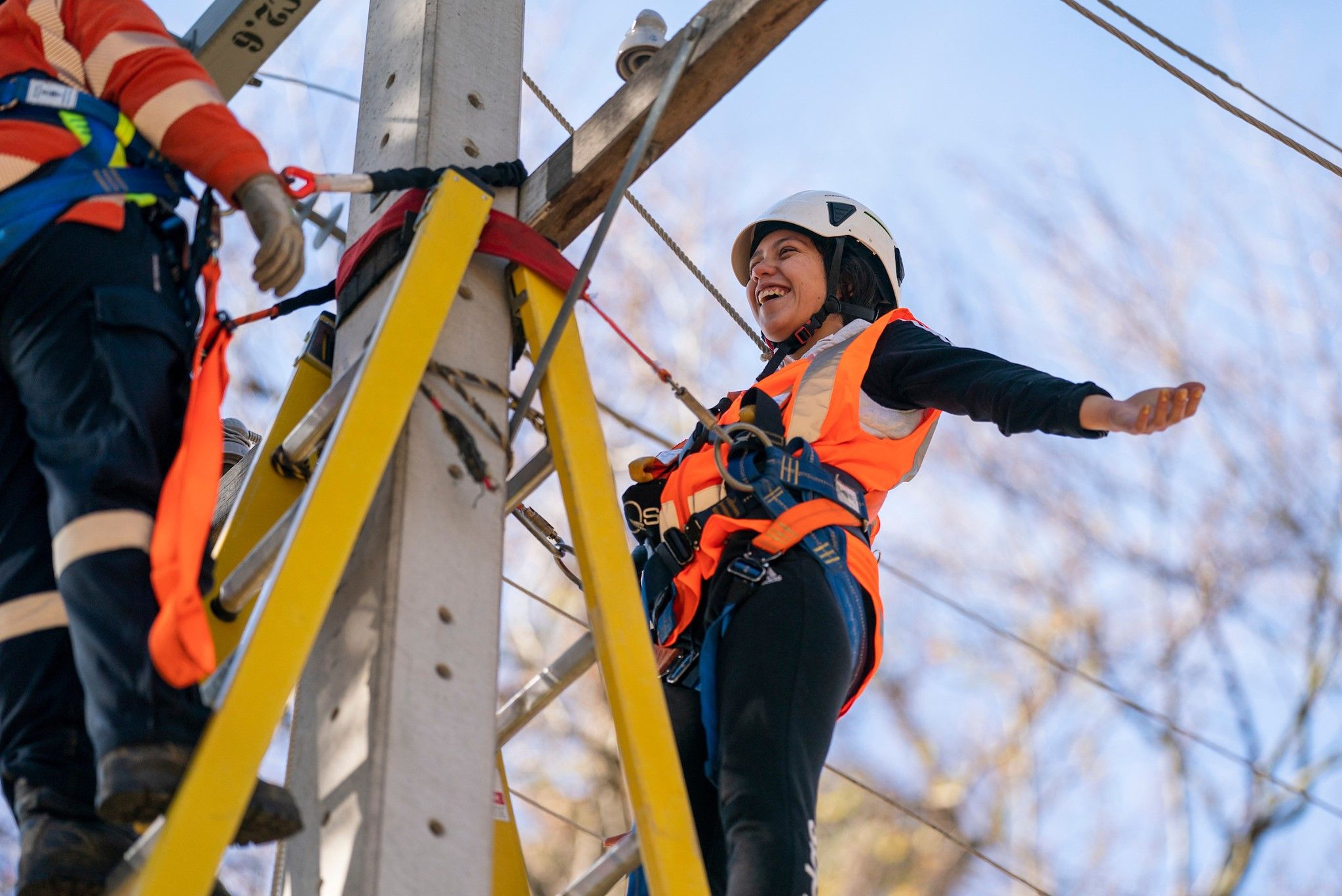Putting energy into workforce diversity, filling skills gapsSponsored
It is a wrap for Girls with Hi-Vis® 2021 but the legacy of this year’s campaign, the most successful in its 10-year history, could bring more diversity to the energy industry and be part of the solution to persistent skills gaps in the workforce.
GWHV is an initiative founded and run by Connexis, the infrastructure Industry Training Organisation. It gives female high school students the opportunity to visit an infrastructure company, get hands-on experience, and hear from inspirational women in the industry.
Ministry of Education funding helped with logistics and collateral, and after the disappointing cancellation of the campaign in 2020, this year proved to be a turning point for GWHV.
An enthusiastic response from infrastructure employers, including many from energy - Connetics, Contact Energy, Genesis Energy, Meridian Energy, Powerco and Unison – as well as high uptake from high schools, led to record numbers of events and attendees and broad participation across our industries and the country.
Twenty-three workplaces opened their doors in June to 539 students from 64 schools in 11 regions.
This year’s attendees visited pump and power stations, wind farms, and construction sites; operated small excavators; hung from a harness two floors up; built dams and water meters; located faults in electrical cables; and raced the pros to tighten bolts with torque wrenches, among other things.
GWHV is a fun day out, not just for the students but for industry insiders who have the opportunity to share their passion, show off their skills and gear, and open young people’s eyes to an alternative career path.
There is much more to it than that, however. It is proven to have real results.
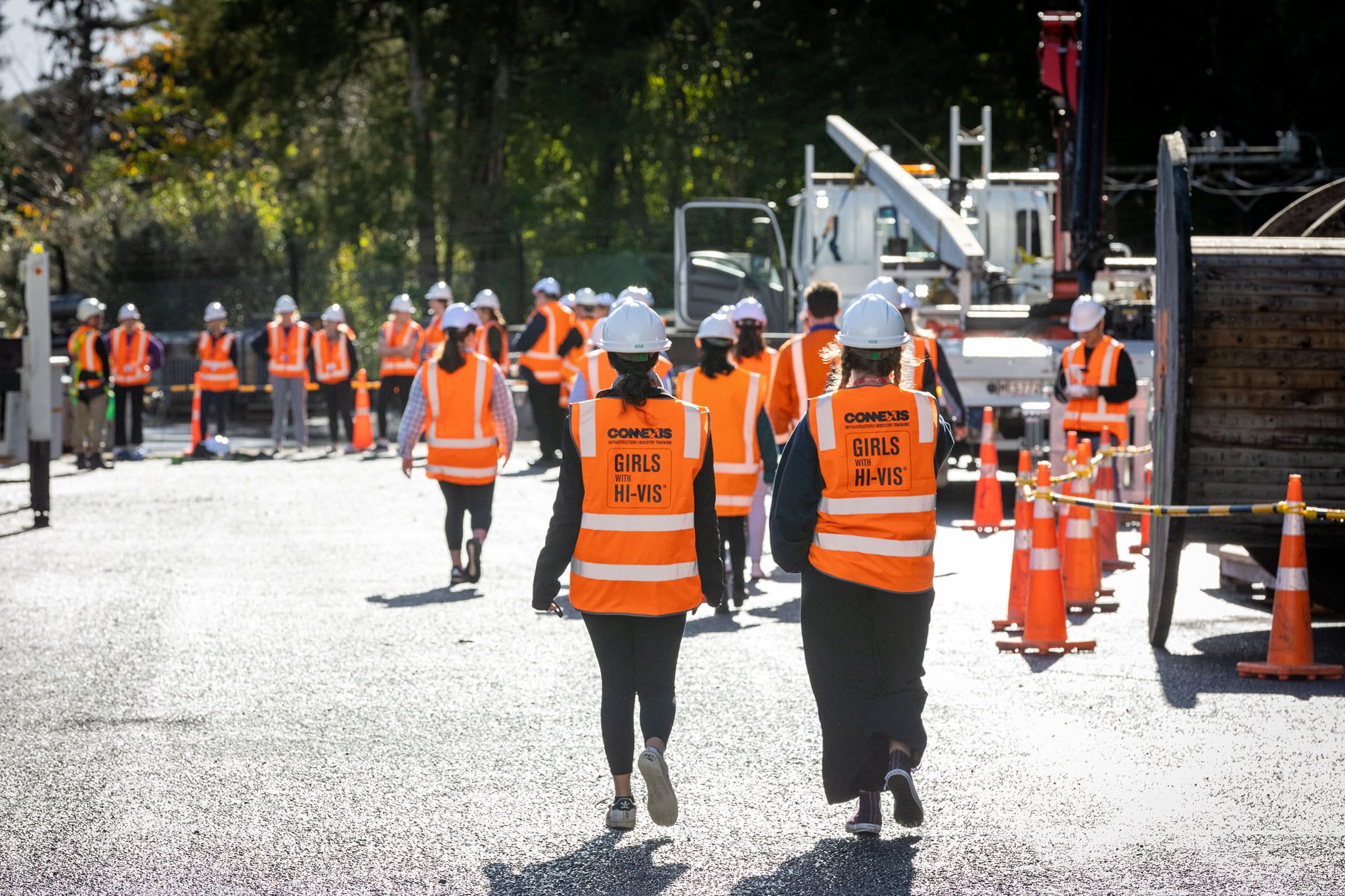
Fifty-five per cent of attendees at this year’s events said they had no idea about a career in the trades or services going into GWHV, but 95 per cent came out feeling more confident about trades as a career prospect. Ninety-five per cent also said they felt more prepared with the skills needed in further education or employment after attending a GWHV event.
Every year since 2016, GWHV has successfully led to participants taking on internships, apprenticeships and employment in infrastructure.
As a 17-year-old, Ellie Pugh became the only woman in MainPower Rangiora’s field services department, following a GWHV event which she attended in Hamilton in 2016.
Rob Wilson, MainPower Operations Manager at the time, said having Ellie on the team in the male dominated workplace was a positive. “Many staff had preconceptions about women not being strong enough to do the job, but Ellie has opened their eyes and she’s changing ingrained views and preconceptions.”
Rob added that diversity in the workplace means much more than just gender and ethnicity. “Globally it has become linked to innovation and diversity of experience and thought. We’ve certainly noticed and appreciated a different balance since Ellie joined the team.”
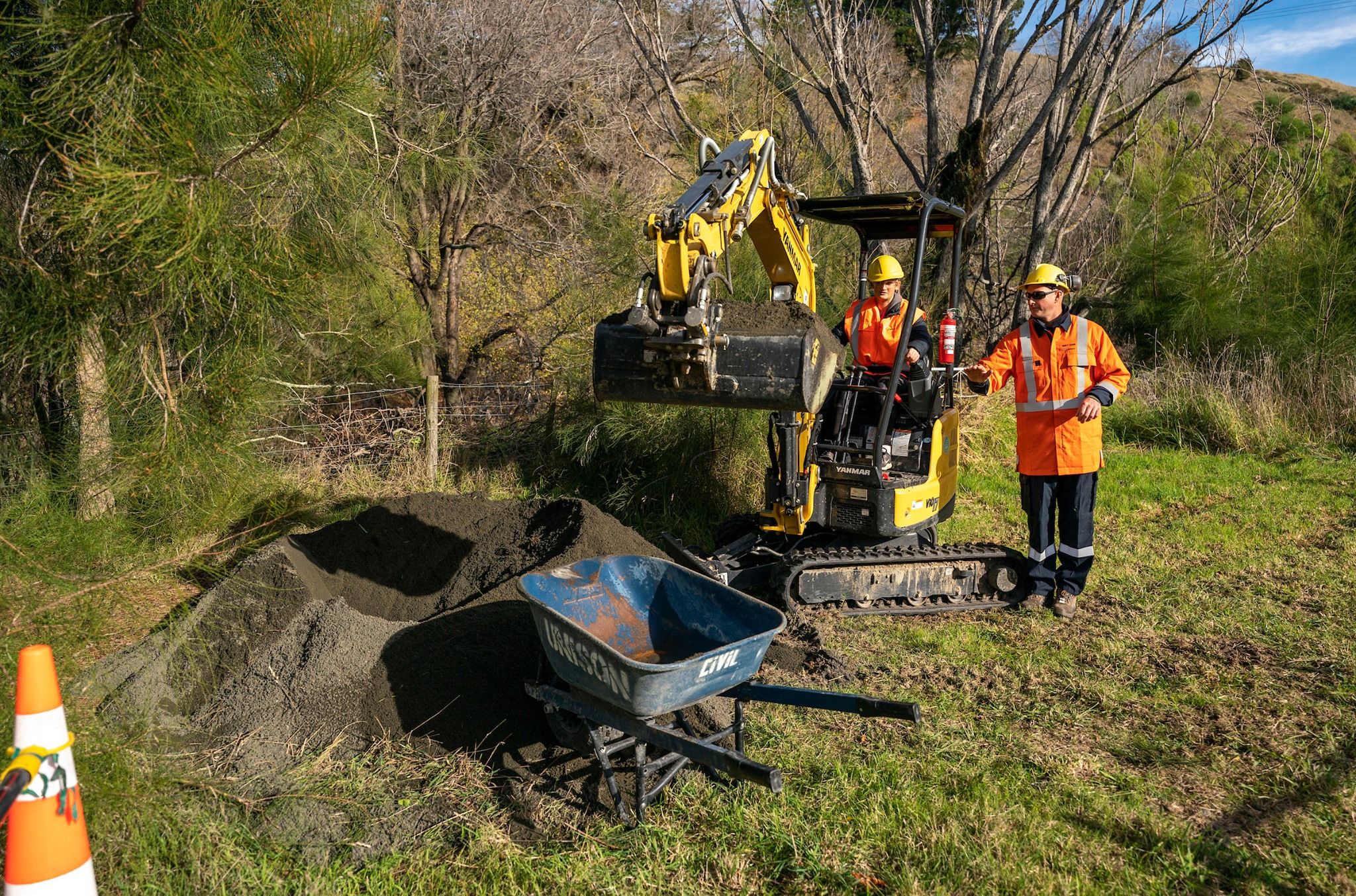
Holly Frewen, who attended a Meridian GWHV event in Twizel in 2017, said it turned her love of engineering into a serious career prospect. She went on to spend one day a week working with Meridian’s mechanical team in Ohau as part of the Gateway programme, which gives high schoolers work experience in infrastructure as well as credits towards NCEA.
“I was already taking engineering in school but had never really thought about taking it further. That Girls with Hi-Vis® event really opened my eyes to what was possible,” Holly says.
Meridian has been hosting events for the past five years, at its wind farms in Wellington and hydro stations in the South Island.
Its GWHV event at the Waitaki hydro scheme control centre in Twizel in 2019 piqued the interest of Pearl Campomanes. She returned to the event this year as an electrical trade apprentice to show pupils of Twizel Area School, of which she was formerly Dux, what attracted her into infrastructure.
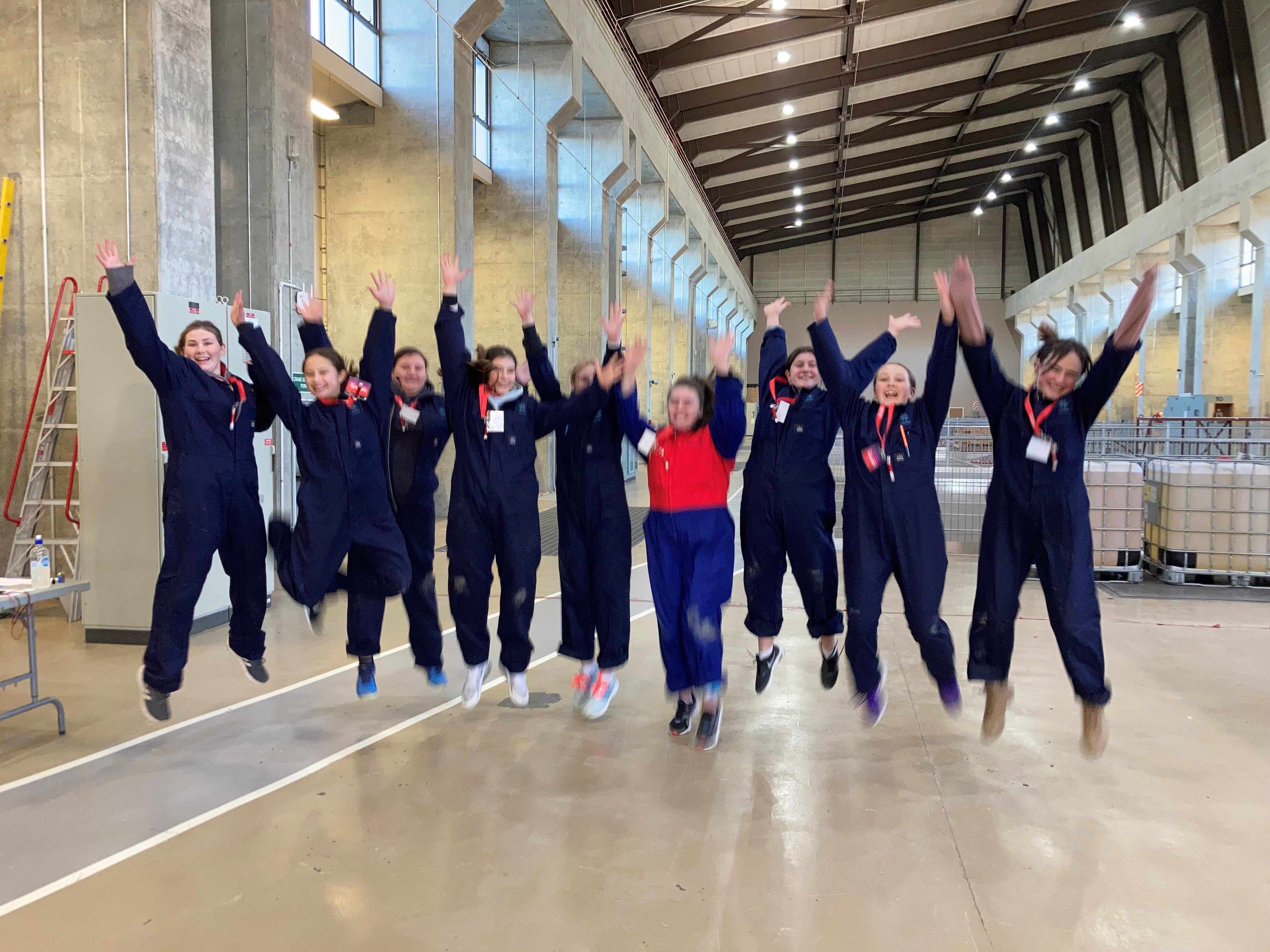
Lani Treur, who manages Meridian’s Mill Creek Wind Farm near Wellington’s Ohariu Valley, says she always finds the GWHV events inspiring, feeling “buzzy” when she sees a girl discover a real aptitude for something she has never tried before.
Lani says women bring a different dynamic to trades work and are often stronger in the “soft skills” around people and emotional intelligence. The importance of these skills cannot be underestimated either she says and are something Meridian is increasingly encouraging. “Technical skills can always be learnt.”
Connexis chief executive Kaarin Gaukrodger agrees increasing diversity by recruiting more women into this traditionally male-dominated industry brings real benefits, something that is backed up by research findings.
A Connexis Women in Power study found women were perceived by managers as more health and safety conscious, and less likely to take shortcuts, with better attention to detail and greater adherence to standard procedures.
It also found women used new techniques and tools for completing physically demanding tasks. This benefited all employees, reducing the risk of accidents and injury from fatigue when undertaking heavy work.
Then there is the high demand for skilled workers within infrastructure and the growing understanding that women can play a crucial role in meeting this demand. It is estimated that an additional 44,000 workers are needed over the next five years in the civil, energy, telco and water sectors.
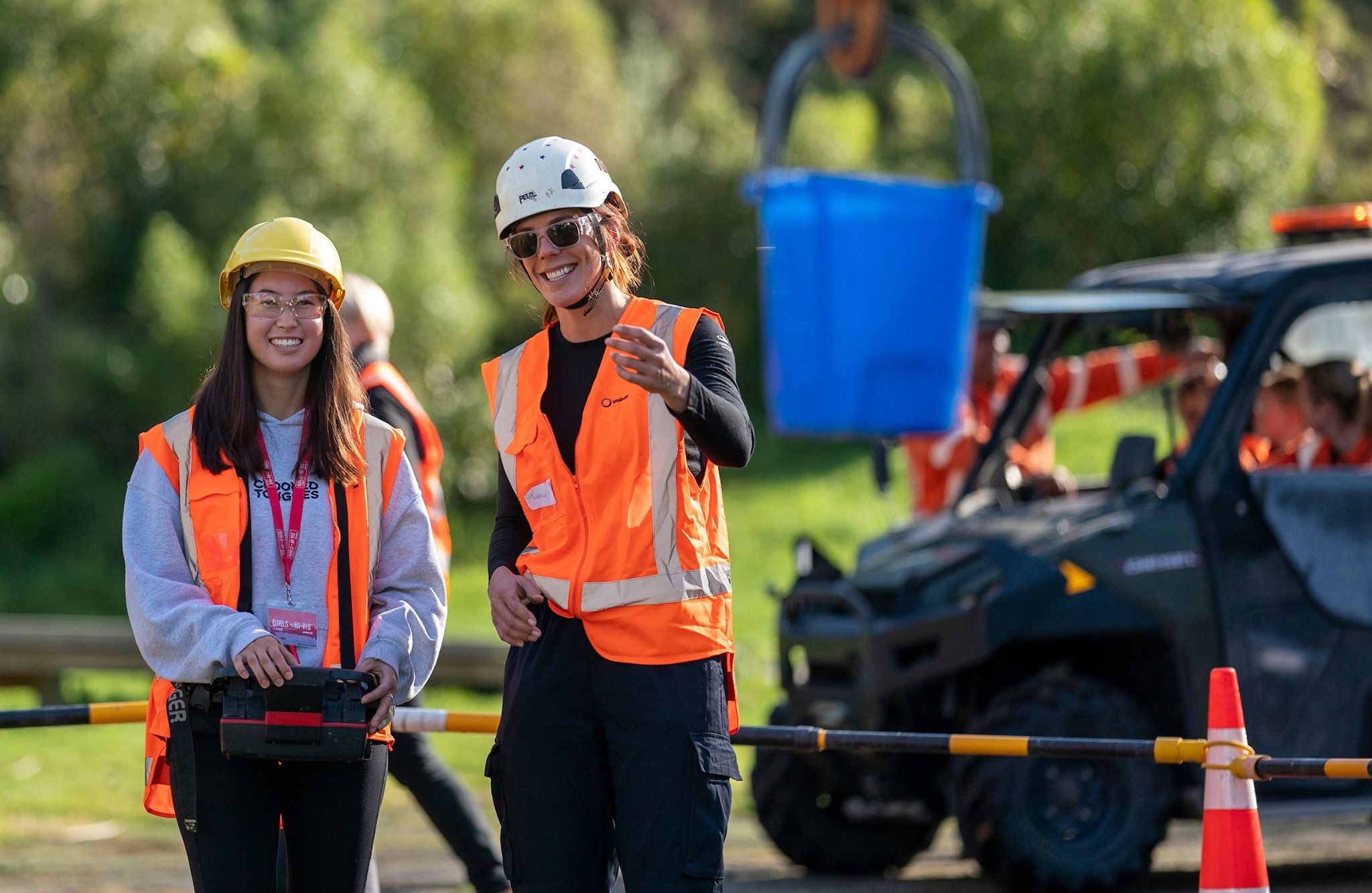
The benefits of recruiting women are well understood within the energy sector and the infrastructure industry more broadly. Ten per cent of infrastructure trainees are women, a target proudly reached this year and a significant improvement on the 3 per cent figure of 10 years ago.
Mentoring programmes, flexible workhours, and equal pay initiatives are just some of the schemes being introduced to make the trades a more favourable career option for women.
In 2018, for example, Genesis Energy embarked on a programme to reduce the gender pay gap for males and females doing equal value work. Another energy firm, Electrix, has a mentoring programme where female trainees are paired up with women who are already established within the industry. Recruitment panels at Meridian must have at least 30 per cent female representation.
Energy was the founding industry for our Ultimit: Women in Infrastructure initiative, which turns 10 this year. It continues to have a strong involvement in the programme with current Ultimit Ambassadors including Laisa Pickering and Danielle Forman from Electrix and Angie Du Randt from Genesis.
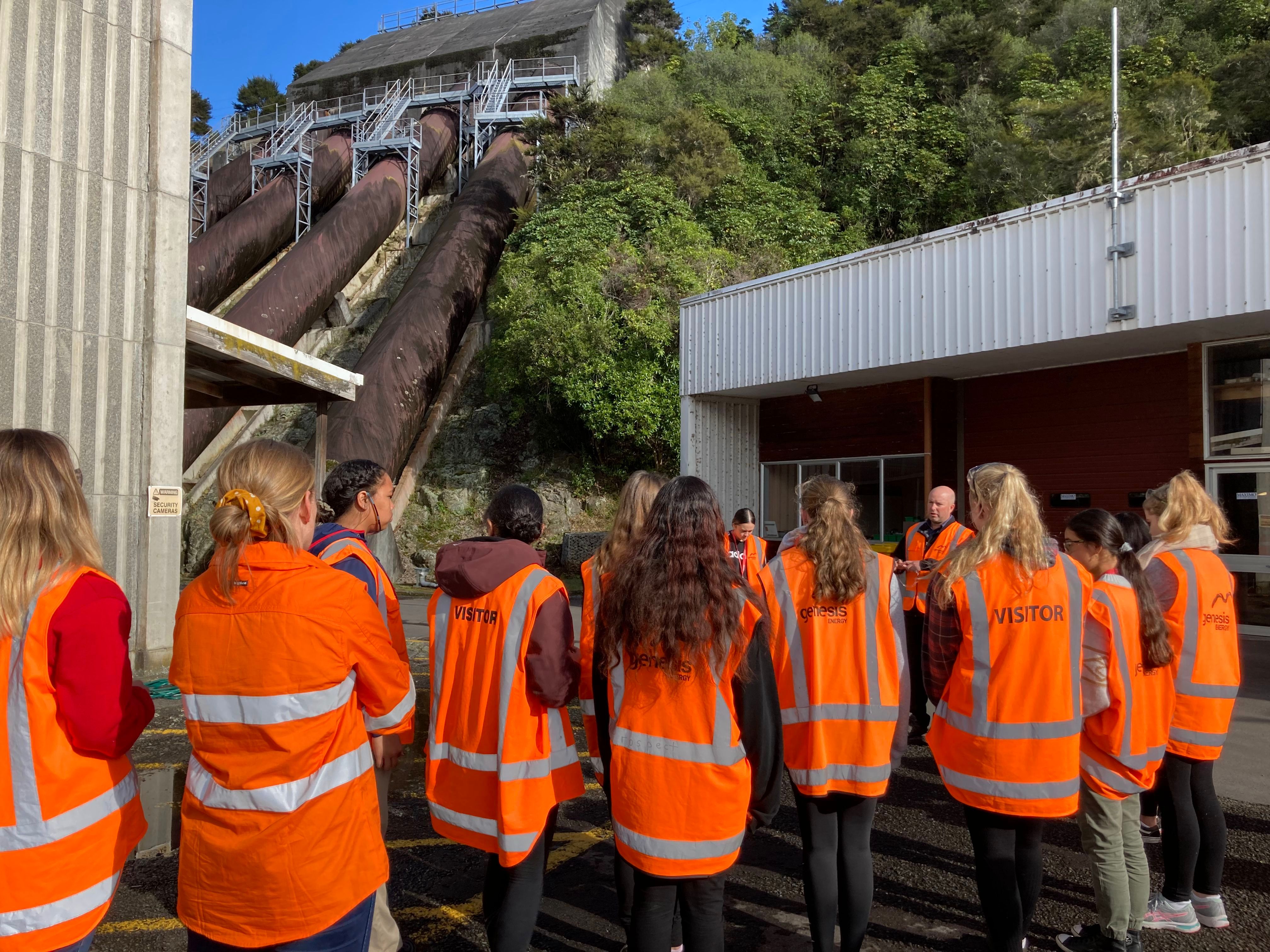
The strong participation by energy firms in this year’s GWHV campaign demonstrates how many firms see it as a critical part of their strategy to attract more women into their workforce. Nine events, nearly half of the total, were held by companies in the electricity supply industry.
If your company would like to get involved in GWHV 2022, register your interest or find out more on https://www.connexis.org.nz/girls-with-hi-vis/. Questions can be directed to marketing@connexis.org.nz.
